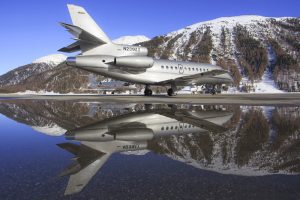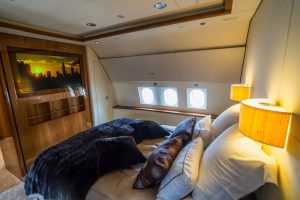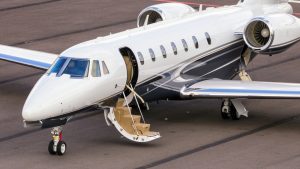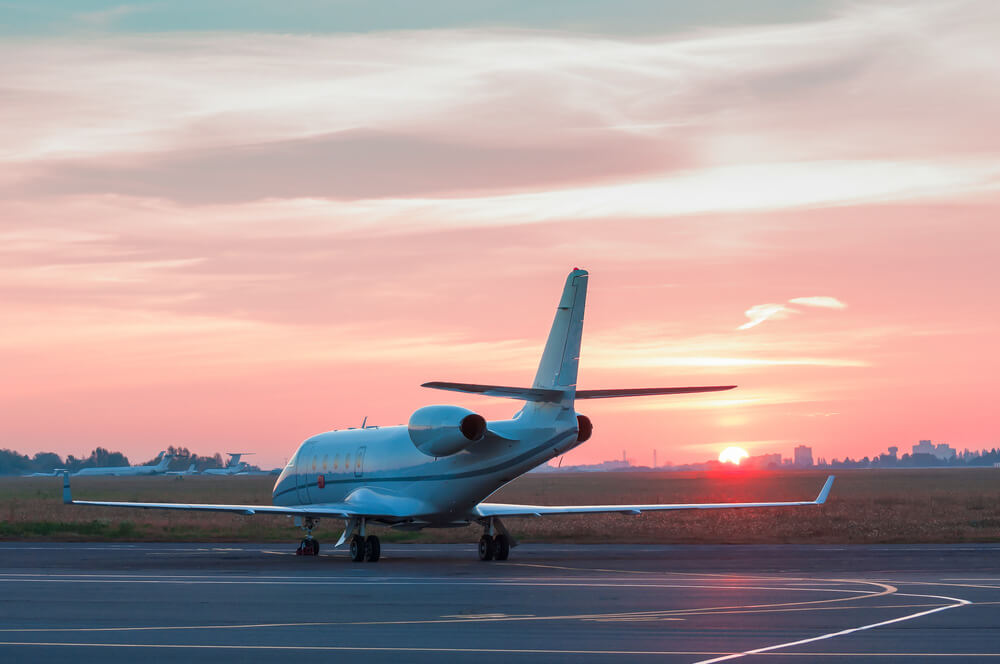The modern world is almost unimaginable without air travel. However, very often we still see it as a quite inflexible way of transportation. Meaning that the travelers are the ones adapting to the schedules of air companies and not the other way around. Such a view is not necessarily accurate. Private jets are an increasingly affordable and accessible way of air travel. Business or private jets – an aircraft designed for a small number of passengers – have been around since the 1950s and during this time became increasingly adaptable for different demands. What are the main types of private jets, which ones are most often used in modern aviation, and what need do they serve?
Main characteristics of a private jet
Broadly speaking, a private jet is an aircraft rented by a single individual or a group of people as opposed to traditionally purchasing individual seats on a commercial airline. There are many significant reasons for choosing to travel in such a way. The main ones being time saving and convenience. Private jets can be readied in just a few hours, which means that the passengers can arrive at the airport just a few minutes before the flight, avoiding lines, layovers, etc. This allows them better plan their time and finances. Private jets typically are also smaller aircraft. This means that they can use significantly more airports compared to larger commercial planes. Such a variety enables passengers to reach their destinations faster and without any connecting flights or additional commuting by trains or cars. Lastly, private jets give you an opportunity to travel comfortably with your belongings. For example, musical or scientific instruments, all kinds of gear, product samples, or even pets.
What jets are used in modern private aviation
Privacy, comfort, and flexibility are the main factors driving the private jet industry forward. Industry experts are reporting that the waiting lists for new planes are steadily increasing. This trend wasn’t affected even by the COVID-19 pandemic. It would be a difficult task to try and find any major aviation company that wouldn’t have a department dedicated to the creation and development of private jets. High demand changed the very approach of the engineering team. If some decades ago private jets were seen as an asset of luxury, nowadays they serve the purpose of making air travel more time and cost-effective. This is the reason why the modern private jet industry is as diverse as ever. Yes, passengers can still charter jets that serve as a status symbol, but there are many more affordable options more suitable for customers who don’t prioritize luxury as much.
Light and very light jets
The most common category of private jets is light jets. It can be further broken down into sub-categories of very light, small light, and super light jets. There is a good reason why this category is so popular. These  are extremely cost-effective aircraft that is easy to maintain and operate. They can also use a wide variety of airports – they are able to take off from, or land on shorter runways. The so-called very light jets are mainly used for shorter trips. Usually, the ones that require no more than three hours of flight time. These aircraft usually accommodate four to seven people. Small light jets are slightly larger planes that usually have up to eight seats. These are fast aircraft that can reach a maximum speed of approximately 800 km. This makes them an ideal choice for travelers on intracontinental trips. Similar to their before-mentioned smaller counterparts, small light jets are able to use small airports which gives them much-appreciated flexibility and gives passengers an opportunity to avoid crowded airports. Super light jets are the biggest aircraft in the light jets category. They can comfortably seat up to eleven people and has a more spacious cabin ensuring a more comfortable trip. Super light jets can also travel bigger distances and yet successfully navigates short runways, allowing passengers to comfortably reach even small airstrips.
are extremely cost-effective aircraft that is easy to maintain and operate. They can also use a wide variety of airports – they are able to take off from, or land on shorter runways. The so-called very light jets are mainly used for shorter trips. Usually, the ones that require no more than three hours of flight time. These aircraft usually accommodate four to seven people. Small light jets are slightly larger planes that usually have up to eight seats. These are fast aircraft that can reach a maximum speed of approximately 800 km. This makes them an ideal choice for travelers on intracontinental trips. Similar to their before-mentioned smaller counterparts, small light jets are able to use small airports which gives them much-appreciated flexibility and gives passengers an opportunity to avoid crowded airports. Super light jets are the biggest aircraft in the light jets category. They can comfortably seat up to eleven people and has a more spacious cabin ensuring a more comfortable trip. Super light jets can also travel bigger distances and yet successfully navigates short runways, allowing passengers to comfortably reach even small airstrips.
Midsize jets
 Mid-size private jets are designed for longer trips. Typical aircraft in this category have a range of around five hours of non-stop travel which means transcontinental capacity. Similar to light jets, mid-size jets typically seat from five to ten passengers but offer much more headroom and space for luggage. The aircraft in this category are designed for comfort and usually have wi-fi and phone capabilities. This allows the passenger to keep working while being on board, ensuring not only a comfortable but also a productive flight. Mid-size jets are operated by two pilots and also have a flight attendant. There is also Super mid-size cabin jets. They offer even cabin space and a bigger flyings capacity. These aircraft are primarily designed for long trips. Super mid-size cabin jets can stay in the air for up to seven hours and cover 5600 km in a single flight. This class also offers a higher degree of comfort with quieter operations and more ample space.
Mid-size private jets are designed for longer trips. Typical aircraft in this category have a range of around five hours of non-stop travel which means transcontinental capacity. Similar to light jets, mid-size jets typically seat from five to ten passengers but offer much more headroom and space for luggage. The aircraft in this category are designed for comfort and usually have wi-fi and phone capabilities. This allows the passenger to keep working while being on board, ensuring not only a comfortable but also a productive flight. Mid-size jets are operated by two pilots and also have a flight attendant. There is also Super mid-size cabin jets. They offer even cabin space and a bigger flyings capacity. These aircraft are primarily designed for long trips. Super mid-size cabin jets can stay in the air for up to seven hours and cover 5600 km in a single flight. This class also offers a higher degree of comfort with quieter operations and more ample space.
Heavy Jets
Heavy jets are designed for long and comfortable journeys. These aircraft typically have a flying capacity of up to nine hours and an impressive range of 6400 km. In other words, it enables passengers to travel from one side of the Atlantic Ocean to the other with great comfort. Heavy jets are most often operated by two pilots and also have two flight attendants who take care of catering and  other amenities. Heavy jets can offer not only wi-fi and phone capabilities essential for a productive trip, but also such perks as entertainment facilities, enclosed bathrooms, sleeping areas, etc. Not to mention spacious legroom. Such an aircraft typically seats around ten passengers. For even longer trips and bigger groups of passengers, there is also ultra-long-range Heavy Jets. These typically accommodate fourteen to seventeen passengers and can cover up to 10 000 km distances making them an ideal choice for long-haul travels. Ultra-long-range Heavy Jets can offer the highest level of comfort completed with enclosed bathrooms, lie-flat beds, plenty of legroom, etc. Of course, such a flight always has an attending staff that caters to every traveler’s need.
other amenities. Heavy jets can offer not only wi-fi and phone capabilities essential for a productive trip, but also such perks as entertainment facilities, enclosed bathrooms, sleeping areas, etc. Not to mention spacious legroom. Such an aircraft typically seats around ten passengers. For even longer trips and bigger groups of passengers, there is also ultra-long-range Heavy Jets. These typically accommodate fourteen to seventeen passengers and can cover up to 10 000 km distances making them an ideal choice for long-haul travels. Ultra-long-range Heavy Jets can offer the highest level of comfort completed with enclosed bathrooms, lie-flat beds, plenty of legroom, etc. Of course, such a flight always has an attending staff that caters to every traveler’s need.
The most luxurious jets – executive liners



We should also mention the most expensive and exclusive type of private jets – the so-called executive liners or biz-liners. These are the aircraft for the most privileged passengers. These planes are typically custom-made or customized to better serve their purpose. They usually offer luxurious interiors, spacious cabins, and all the other elements that you would expect from an elite traveling experience. Executive liners are much bigger planes than say light or mid-size jets. Depending on its customization such an aircraft can seat from 19 to 48 passengers and provide them with the highest level of comfort, complete with such amenities as cocktail lounges, showers, conference rooms, and full-service galleys. Executive liners are powerful and durable aircraft, that can navigate impressively high altitudes, cover great distances and successfully endure most weather conditions. For these reasons, they are perfect for long trips or intercontinental flights. A typical executive liner can spend up to ten hours in the air without a need for a stopover.
How to pick the best private jet
 Statistics clearly demonstrate that jet charters are becoming an increasingly popular choice for travelers. There is no reason to doubt that this trend should be somehow disrupted. This means that investors are becoming increasingly attentive to the development of private aviation and its availability for more people. Further evolution of the field will also depend on economic factors. Engineers are tasked with making private jets even more fuel-efficient, durable, and safe. Currently, there are several companies that produce jets capable of retaining their value for a number of years. Cessna jets are continually described as being at the top of the industry. These aircraft hold their value incredibly well, don’t require too much upkeep, and are known for their fuel efficiency. Gulfstream jets are hard to top in terms of range, fuel efficiency, and general comfort, they are hard to top. They are an especially great choice for travelers that are looking for mid-sized jets. Boeing is another well-known brand of private jets. The company enjoys the reputation of being one of the most innovative and reliable in the entire industry.
Statistics clearly demonstrate that jet charters are becoming an increasingly popular choice for travelers. There is no reason to doubt that this trend should be somehow disrupted. This means that investors are becoming increasingly attentive to the development of private aviation and its availability for more people. Further evolution of the field will also depend on economic factors. Engineers are tasked with making private jets even more fuel-efficient, durable, and safe. Currently, there are several companies that produce jets capable of retaining their value for a number of years. Cessna jets are continually described as being at the top of the industry. These aircraft hold their value incredibly well, don’t require too much upkeep, and are known for their fuel efficiency. Gulfstream jets are hard to top in terms of range, fuel efficiency, and general comfort, they are hard to top. They are an especially great choice for travelers that are looking for mid-sized jets. Boeing is another well-known brand of private jets. The company enjoys the reputation of being one of the most innovative and reliable in the entire industry.
Airports that serve private jets
Passengers that are interested in chartered planes but are still in the process of giving them a chance often wonder if jet planes can offer the same destinations as commercial flights. Actually, this is one of the key advantages of private jets — they can use both major and small airports. Usually, private flyers prefer the latter ones. This can offer an added value to the passenger as such airports are often located closer to their destination. In addition to that major airports usually have stricter security checks and their staff has to deal with much higher volumes of traffic. This means that private flights are often put in a ‘holding pattern’ to give airliners priority. Such delays are typical when flying commercially, but they defeat the purpose somewhat when you’re paying for a private flight.
Smaller jets are also typically asked to maintain higher speeds until they are close to the runway, to maintain a majority of the space for the larger jets behind them. This can be a trying experience even for high-time pilots. Large commercial airports are also easier for the pilot to get lost in. If a pilot is unfamiliar with an airport, you may end up heading the wrong way. On the other hand, smaller airports help to avoid such problems. Last but not least, slots at commercial airports are also more difficult to obtain as commercial flights have priority for landing and takeoff slots. Smaller airports usually don’t have this problem. In other words, private jets allow the passenger to save time not only for the travel itself but also for preparing for the flight and leaving the airport.
Should you own a personal private jet
 If you’re wondering whether you should start traveling on chartered flights or maybe even invest in your own personal private jet, there are a few major questions you should ask yourself. First of all: how much do you fly. Aircraft vendors will tell you that if you spend 200 hours a year in the sky, it justifies the outright purchase of a private jet. The type of travel you most often do might be even more important than air hours. For instance, you frequently have to schedule one-way flights, then you’ll have to pay the cost of sending the plane and its crew back. Also if you plan to remain at a particular destination for a week or more, the pilots, crew, and plane must be accommodated for the entire period of time or sent home. In both cases, the costs may well outweigh the benefits of buying in the first place. In such cases, the chartered flight is a much more economically sound investment.
If you’re wondering whether you should start traveling on chartered flights or maybe even invest in your own personal private jet, there are a few major questions you should ask yourself. First of all: how much do you fly. Aircraft vendors will tell you that if you spend 200 hours a year in the sky, it justifies the outright purchase of a private jet. The type of travel you most often do might be even more important than air hours. For instance, you frequently have to schedule one-way flights, then you’ll have to pay the cost of sending the plane and its crew back. Also if you plan to remain at a particular destination for a week or more, the pilots, crew, and plane must be accommodated for the entire period of time or sent home. In both cases, the costs may well outweigh the benefits of buying in the first place. In such cases, the chartered flight is a much more economically sound investment.
What to know before your first private jet flight
 If you have chosen to give private flight a chance, the very first thing you should is picking a charter company that best suits your needs. These experts can help you decided which aircraft is best for your journey from a range of models and options. A good charter company always takes into consideration the number of passengers on your flight, the amount of luggage, your travel schedule, and any onboard amenities or facilities you need. Depending on this information they decide on the size of the jet, its crew, etc. If you are flying by private jet, you will probably be departing through the so-called FBO – Fixed Based Operator. Depending on the charter company, it can be in both a separate terminal connected to a larger airport or in a completely different building or location. The key aspect is that you can arrive at the FBO much later than you would at the standard airport. After landing, ground transport is usually available for the passengers enabling them to leave the airport momentarily.
If you have chosen to give private flight a chance, the very first thing you should is picking a charter company that best suits your needs. These experts can help you decided which aircraft is best for your journey from a range of models and options. A good charter company always takes into consideration the number of passengers on your flight, the amount of luggage, your travel schedule, and any onboard amenities or facilities you need. Depending on this information they decide on the size of the jet, its crew, etc. If you are flying by private jet, you will probably be departing through the so-called FBO – Fixed Based Operator. Depending on the charter company, it can be in both a separate terminal connected to a larger airport or in a completely different building or location. The key aspect is that you can arrive at the FBO much later than you would at the standard airport. After landing, ground transport is usually available for the passengers enabling them to leave the airport momentarily.
